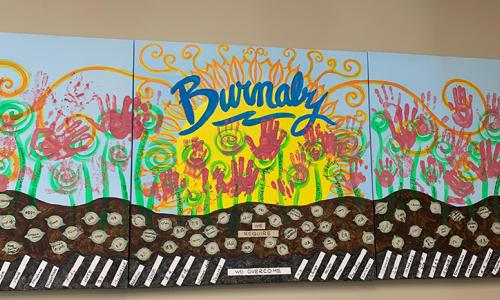
Conflict is an inescapable and completely necessary part of life.
There’s no denying it – people see and understand the world differently, and it’s only a matter of time before perspectives clash, right and wrong get mixed up, and feelings get hurt.
But it’s pretty clear that different people handle conflict uniquely. Some seem to be completely unshaken in the face of conflict, while others go to great lengths to avoid it, knowing that they don’t handle it well at all. Then there are the people who seem to be great friends with all kinds of trouble – everyone knows at least one person who always seems to be in some kind of drama. They probably don’t really seem like happy people, but underneath it all, they thrive on all that discord. Without it, they wouldn’t know what to do with themselves.
It’s worth reflecting on how you handle conflict. Not everyone is a perfect conflict resolver, nor should everyone be. In fact, if everyone was trying to get a handle on all the conflict all the time, things would probably be a lot worse! Nor is there only way way of dealing with conflict. Some will preach assertiveness, some will vouch for listening skills, or other methods. Regardless, I would think that it’s arguably better to have a variety of conflict resolution styles in a group.
Think of the last time you were in a job interview. I can be about 90% sure that you were asked to reflect on a conflict situation of some kind, and how you dealt with it. Did you stumble through the answer? Did you have a perfectly thought-out story to tell? Were you able to elaborate on exactly how you handled it, and what role you played?
Many leading theories of personality psychology posit that our personalities emerge as relatively stable during early childhood. Say, somewhere around age five to seven. After that, your core personality traits are unlikely to change much – partly due to the fact that you’ve implicitly made some fundamental assumptions about how the world works, and partly due to the massive developmental changes in your brain during early childhood. How you learned to deal with difficult interpersonal situations as a child could have a lasting effect on how you approach conflict for the rest of your life.

When I think back to my own childhood, I can recall a few conflict situations. I learned very quickly that scrapping with my older brother would likely lead to me getting the worst of the exchange (not that that stopped me in any way). Additionally, in bullying situations in my early years at school, my lanky physical attributes never proved to be much of a deterrent, and I was never really able to form clever verbal counter-arguments (calling names and such) quickly enough.
So it wasn’t long before I began to see the wisdom in avoiding conflict situations when I could. I became willing and able to put up with a certain amount of grief for the sake of not escalating the conflict, usually leading to the aggressor either losing interest or becoming self-satisfied enough to leave the issue. I would still feel embarrassed and angry, but would keep these feelings to myself like a good little boy until the problem situation had passed.
As the years went by and I became more self-confident, I would learn that it’s not healthy to let feelings boil and stew internally, nor is it okay to let people walk all over me and not do anything about it. I also began to notice that I was better at listening than I was at talking, as people seemed to be comfortable telling me about their problems. I learned to see strengths where before I had known only weaknesses. Where I once would have witnessed someone yelling and felt embarrassed and scared, now I see such outbursts and look for the emotions underneath – the real reasons why they are upset – so that I can calmly empathize. Where I once would have described myself as shy and reserved, I now describe myself as introspective and low-key.
Because I know these things about myself, I am able to use strengths-based language to describe my ability to handle conflict. I might say something to the effect of remaining calm, empathizing, re-framing issues, and clarifying different perspectives would be my main strategies for dealing with conflict now – often times that is enough for the parties involved to see their role in the conflict differently and come to their own solutions.
So, the question remains – how do you best deal with conflict? Do you approach it head-on, or do you prefer to stay in the background and let things simmer down? What are the advantages of your preferred strategy?
Because you can bet that it’s only a matter of time before someone wants to know.

















